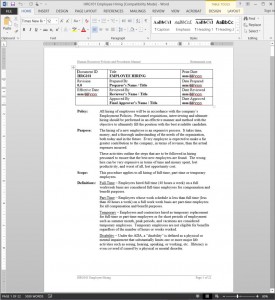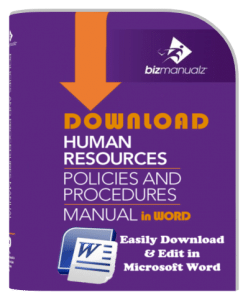What Employers Need to Consider When Hiring Minors

The Fair Labor Standards Act (FLSA) regulates youth employment. It covers employment aspects like wages, work hours, and the type of work minors can do. Therefore, as an employer, you should be familiar with federal and state employment law compliance regarding hiring minors to ensure you fulfill your obligations as an employer. Read on to find out what employers need to consider when hiring minors to ensure compliance with the law.
What to Know About Hiring Minors
While most teens spend their holidays having fun, others utilize their time working to earn some income or gain practical work experience, such as improving their teens’ tech skills. When hiring anyone below the legal age (usually 18), you should comply with employment laws to avoid costly legal issues.
Age Restrictions for Minors
As an employer, you should know the age limits of those you can hire for your workforce. The FLSA law allows employers to hire minors with a minimum age of 14 years for non-agricultural work. Therefore, just because a minor is under 18 years doesn’t mean you can hire them. Despite the minimum age restrictions for youth employment, some jobs have no minimum age limits, and any young person can apply for them regardless of age.
These include delivering newspapers, theatre and movie productions, babysitting and minor household chores, and performing on TV or radio. Despite the recommended age limit, every state may have its laws. As a general rule, always adhere to the stricter of the two in case the federal and state laws conflict. The law recommends obtaining proof of age for verification before employment.
Compensating a Minor
Just like adult employees, minors are entitled to a statutory minimum wage as compensation for the hours they work. However, the FLSA provides an exception where employers can pay minors $4.25 per hour during the first 90 days of employment. In most cases, state laws call for higher compensation for minors, making the opportunity wage less popular. However, if you are hiring minors and want to enjoy labor savings in your payroll without being at risk of legal issues, you can avail yourself of the exception.
Hazardous Occupations
Before hiring a minor, you should know the law prohibits employers from employing minors in non-agricultural occupations that appear in the list of USDOL’s hazardous occupations. Additionally, you may not employ 14 and 15-year-olds in mining or manufacturing industries.
Other examples of hazardous jobs that minors shouldn’t work include:
- Warehousing and storage
- Driving or being an outside helper of motor vehicles
- Construction and repair
- Operating power-driven machines
- Firefighting
- Working in areas where manufacturing, mining, or processing takes place
- Occupations that expose minors to radioactive substances
Exceptions exist that may allow 16 and 17-year-olds to work some jobs as apprentices or student learners. To be on the safe side, you should only employ minors of ages 14 and 15 in-office or clerical occupations. Make sure to document any hiring and safety restrictions when writing job descriptions.
Working Hours for Minors
The law has work hour restrictions that guide minors’ working hours. According to SHRM’s website, 16 and 17-year-old olds can work for unlimited hours in non-hazardous occupations, while 14 and 15-year-olds can only work outside school hours in non-hazardous, non-mining, and non-manufacturing jobs. On the same note, 14 and 15-year-olds should not work before 7.00 am or after 7.00 pm, although their work hours extend to 9 pm from June 1 to Labor Day.
Below are the guidelines on maximum work hours for minors between 14 and 15 years
- Not more than 3 hours during school days
- Not More than 8 hours daily during non-school days
- Not more than 18 hours weekly on school weeks
- Not more than 40 hours a week on days when school is not in session
While the FLSA does not have work hour restrictions for 16 and 17-year-olds, most states have limitations on how many hours this age group can work. Therefore, you should be familiar with your state laws for compliance.
Consent Is Important
Whether you are issuing a contract to a minor or conducting background or medical checks, you must first obtain consent. In the case of binding agreements, both parties must have the legal capacity to enter into the contract. According to the law, minors are ineligible to consent as they lack the mental capacity to enter into binding agreements.
Since minors cannot give consent according to the law, consider seeking parental authorization for issues like criminal or credit background checks as well as drug tests. When entering into a contract with a minor, note that they are voidable. Minors can disaffirm or void a contract before they are 18 or after a reasonable time after they turn 18. Depending on state and federal laws, you should ensure you take appropriate steps to avoid consent-related problems.
Employer Considerations When Hiring Minors
While offering minors opportunities for early work experience is mutually beneficial to the minor and your business, you should do so within the confines of the law. To prevent costly legal complications, you should follow employment rules when hiring someone under the legal age.
















Leave a Reply